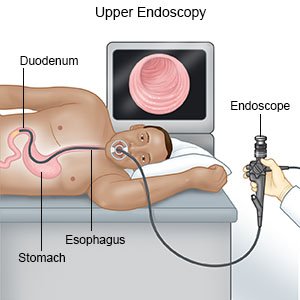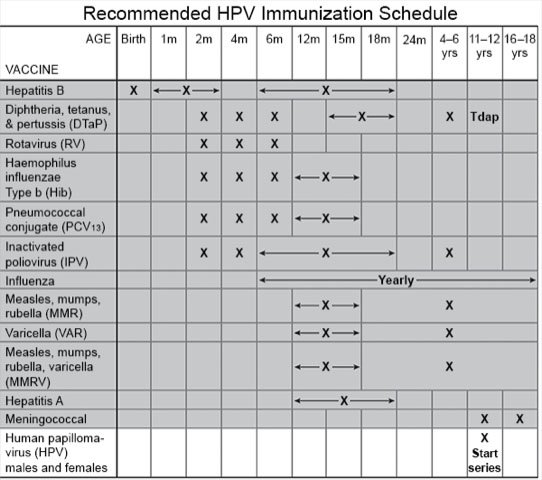Oropharyngeal Cancer
Medically reviewed by Drugs.com. Last updated on Apr 6, 2025.
What do I need to know about oropharyngeal cancer?
Oropharyngeal cancer forms at the back of the throat. Common places include the tonsils, base of the tongue, back and sides of the throat, and soft palate. Most oropharyngeal cancers are squamous cell carcinoma (SCC). SCC is a slow growing cancer that usually does not spread. Squamous cells are found in the skin, organs, respiratory tract, and digestive tract.
 |
What increases my risk for oropharyngeal cancer?
- A human papillomavirus (HPV) infection
- Use of tobacco products or alcohol
- Past head or neck cancer
- A family history of certain types of cancer
What are the signs and symptoms of oropharyngeal cancer?
- A sore throat that continues, or a lesion (sore) that will not go away
- Swollen lymph nodes (lumps) in your neck
- Pain when you swallow or trouble swallowing
- Blood in your sputum (spit) when you cough
- Not being able to open your mouth all the way, or trouble moving your tongue
- Earaches
- Weight loss without trying
How is oropharyngeal cancer diagnosed?
Your healthcare provider will ask about any symptoms you have and when they started. Tell your provider if you have a personal or family history of cancer. Your provider will feel your neck for lumps. You may also need any of the following:
- A biopsy (sample of mouth tissue or a sore) may be taken and checked for cancer.
- Tissue staining is a procedure to see if the tissue looks normal or abnormal. Dye is placed on the lesions in your mouth to check the reaction.
- CT or MRI pictures may show nodules, masses, or tissue thickening. You may be given contrast liquid to help the mouth cancer show up better in the pictures. Tell the healthcare provider if you have ever had an allergic reaction to contrast liquid. Do not enter the MRI room with anything metal. Metal can cause serious injury. Tell the healthcare provider if you have any metal in or on your body.
- An endoscopy is a procedure used to look directly at the tissues of your mouth, throat, and upper airway. An endoscope is a flexible tube with a light and camera on the end.

- Biomarker testing is a blood test that may be used to check for certain cancer proteins or substances. This helps your provider recommend some treatments, such as immune checkpoint inhibitors. Biomarker testing may be recommended if you have SCC that comes back after treatment or that metastasizes (spreads).
How is oropharyngeal cancer treated?
- Surgery is the preferred treatment for oropharyngeal cancer. Surgery may be used to remove the cancer cells. You may need to have one or more parts of your throat removed. Lymph nodes in your neck may also need to be removed.
- Radiotherapy is a procedure that uses radiation used to kill cancer cells and stop the cancer from spreading. It may be used with or without surgery.
- Chemotherapy is a type of medicine that may be used with or without radiation to kill the cancer cells.
- Immune checkpoint inhibitor medicines may help your immune system kill the cancer or keep it from progressing as quickly.
What can I do to prevent or manage oropharyngeal cancer?
- Prevent an HPV infection. HPV-linked SCC is the most common type of oropharyngeal cancer. HPV is usually spread through sexual activity. The following are ways to prevent infection:
- Ask about the HPV vaccine. The HPV vaccine is given to females and males, usually at 11 or 12 years of age. It can be given from 9 years through 45 years of age, if needed. It is most effective if given before sexual activity begins.

- Use a new condom, contraceptive barrier, or dental dam each time you have sex. This includes oral, vaginal, and anal sex. Talk to your healthcare provider if you do not know what to use or how to use it.
- Ask about the HPV vaccine. The HPV vaccine is given to females and males, usually at 11 or 12 years of age. It can be given from 9 years through 45 years of age, if needed. It is most effective if given before sexual activity begins.
- Do not use tobacco products or drink alcohol. These can increase your risk for cancer or make your symptoms worse. Ask your healthcare provider for information if you currently smoke cigarettes or drink alcohol and need help to quit. E-cigarettes or smokeless tobacco still contain nicotine. Talk to your healthcare provider before you use these products.
- Eat healthy foods. Healthy foods include fruits, vegetables, whole-grain breads, low-fat dairy products, beans, lean meats, and fish. Take small bites, and chew your food well before you swallow. Be especially careful when you eat meat, fruits, and vegetables. A dietitian may help to plan the best meals and snacks for you.

- Exercise as directed. Exercise may help increase your energy level and appetite. Ask your healthcare provider how much exercise you need and which exercises are best for you.

Where can I find support and more information?
- American Cancer Society
250 Williams Street
Atlanta , GA 30303
Phone: 1- 800 - 227-2345
Web Address: http://www.cancer.org
Call your local emergency number (911 in the US) for any of the following:
- You have trouble breathing.
- Your cough up or spit out blood.
When should I seek immediate care?
- You are having a hard time swallowing.
- You have warmth, pain, or redness in your throat.
When should I call my doctor?
- You have new or worsening symptoms.
- You have questions or concerns about your condition or care.
Care Agreement
You have the right to help plan your care. Learn about your health condition and how it may be treated. Discuss treatment options with your healthcare providers to decide what care you want to receive. You always have the right to refuse treatment. The above information is an educational aid only. It is not intended as medical advice for individual conditions or treatments. Talk to your doctor, nurse or pharmacist before following any medical regimen to see if it is safe and effective for you.© Copyright Merative 2025 Information is for End User's use only and may not be sold, redistributed or otherwise used for commercial purposes.
Further information
Always consult your healthcare provider to ensure the information displayed on this page applies to your personal circumstances.
